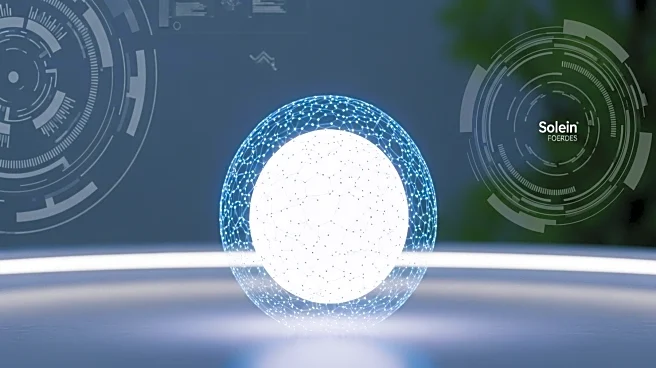What is the story about?
What's Happening?
Solar Foods, a company specializing in sustainable protein production, is aiming to enter the U.S. market with its innovative product, Solein. Solein is produced through a gas fermentation process that utilizes air and renewable energy, making it significantly more sustainable than traditional whey protein. The product requires 100 times less land and water and emits less CO2 compared to whey. Already approved for sale in Singapore, Solar Foods is now focusing on the U.S., where it has submitted a GRAS notification to the FDA. The company plans to target the high-end health and performance segment, which is currently dominated by whey protein isolate, a market expected to reach $10 billion in value within the next decade.
Why It's Important?
The introduction of Solein to the U.S. market could significantly impact the protein supplement industry, offering a more sustainable alternative to whey protein. This aligns with growing consumer demand for environmentally friendly products and could shift market dynamics in favor of sustainable options. The potential reduction in land and water use, along with lower CO2 emissions, positions Solein as a viable solution to environmental concerns associated with traditional protein production. If successful, Solar Foods could pave the way for broader acceptance and integration of alternative proteins in the U.S., influencing both consumer choices and industry standards.
What's Next?
Solar Foods is awaiting a 'no questions' letter from the FDA, which would allow it to fully enter the U.S. market. In the meantime, the company is permitted to sell Solein in the U.S. and is focusing on penetrating the high-end health and performance segment. As the demand for high-protein products continues to grow, Solar Foods sees an opportunity to fill the gap left by traditional whey production. The company's success in the U.S. could encourage other markets to adopt similar sustainable protein alternatives, potentially leading to a global shift in protein consumption patterns.
Beyond the Headlines
The introduction of Solein could have broader implications for food security and sustainability. By reducing reliance on conventional agriculture, Solein offers a solution that can be produced anywhere, at any time, potentially addressing food scarcity issues. Additionally, its neutral taste allows for versatile use in various food products without the need for additives, which could appeal to health-conscious consumers. As Solar Foods expands its market presence, it may also influence regulatory frameworks and consumer perceptions regarding novel food technologies.















